Ex: http://www.counter-currents.com/
The demise of the United States as the global superpower could come far more quickly than anyone imagines.
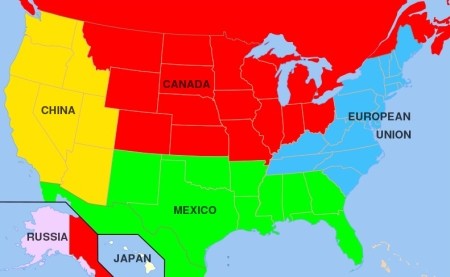 A soft landing for America 40 years from now? Don’t bet on it. The demise of the United States as the global superpower could come far more quickly than anyone imagines. If Washington is dreaming of 2040 or 2050 as the end of the American Century, a more realistic assessment of domestic and global trends suggests that in 2025, just 15 years from now, it could all be over except for the shouting.
A soft landing for America 40 years from now? Don’t bet on it. The demise of the United States as the global superpower could come far more quickly than anyone imagines. If Washington is dreaming of 2040 or 2050 as the end of the American Century, a more realistic assessment of domestic and global trends suggests that in 2025, just 15 years from now, it could all be over except for the shouting.
Despite the aura of omnipotence most empires project, a look at their history should remind us that they are fragile organisms. So delicate is their ecology of power that, when things start to go truly bad, empires regularly unravel with unholy speed: just a year for Portugal, two years for the Soviet Union, eight years for France, 11 years for the Ottomans, 17 years for Great Britain, and, in all likelihood, 22 years for the United States, counting from the crucial year 2003.
Future historians are likely to identify the Bush administration’s rash invasion of Iraq in that year as the start of America’s downfall. However, instead of the bloodshed that marked the end of so many past empires, with cities burning and civilians slaughtered, this twenty-first century imperial collapse could come relatively quietly through the invisible tendrils of economic collapse or cyberwarfare.
But have no doubt: when Washington’s global dominion finally ends, there will be painful daily reminders of what such a loss of power means for Americans in every walk of life. As a half-dozen European nations have discovered, imperial decline tends to have a remarkably demoralizing impact on a society, regularly bringing at least a generation of economic privation. As the economy cools, political temperatures rise, often sparking serious domestic unrest.
Available economic, educational, and military data indicate that, when it comes to U.S. global power, negative trends will aggregate rapidly by 2020 and are likely to reach a critical mass no later than 2030. The American Century, proclaimed so triumphantly at the start of World War II, will be tattered and fading by 2025, its eighth decade, and could be history by 2030.
Significantly, in 2008, the U.S. National Intelligence Council admitted for the first time that America’s global power was indeed on a declining trajectory. In one of its periodic futuristic reports, Global Trends 2025, the Council cited “the transfer of global wealth and economic power now under way, roughly from West to East” and “without precedent in modern history,” as the primary factor in the decline of the “United States’ relative strength — even in the military realm.” Like many in Washington, however, the Council’s analysts anticipated a very long, very soft landing for American global preeminence, and harbored the hope that somehow the U.S. would long “retain unique military capabilities… to project military power globally” for decades to come.
No such luck. Under current projections, the United States will find itself in second place behind China (already the world’s second largest economy) in economic output around 2026, and behind India by 2050. Similarly, Chinese innovation is on a trajectory toward world leadership in applied science and military technology sometime between 2020 and 2030, just as America’s current supply of brilliant scientists and engineers retires, without adequate replacement by an ill-educated younger generation.
By 2020, according to current plans, the Pentagon will throw a military Hail Mary pass for a dying empire. It will launch a lethal triple canopy of advanced aerospace robotics that represents Washington’s last best hope of retaining global power despite its waning economic influence. By that year, however, China’s global network of communications satellites, backed by the world’s most powerful supercomputers, will also be fully operational, providing Beijing with an independent platform for the weaponization of space and a powerful communications system for missile- or cyber-strikes into every quadrant of the globe.
Wrapped in imperial hubris, like Whitehall or Quai d’Orsay before, the White House still seems to imagine that American decline will be gradual, gentle, and partial. In his State of the Union address last January, President Obama offered the reassurance that “I do not accept second place for the United States of America.” A few days later, Vice President Biden ridiculed the very idea that “we are destined to fulfill [historian Paul] Kennedy’s prophecy that we are going to be a great nation that has failed because we lost control of our economy and overextended.” Similarly, writing in the November issue of the establishment journal Foreign Affairs, neo-liberal foreign policy guru Joseph Nye waved away talk of China’s economic and military rise, dismissing “misleading metaphors of organic decline” and denying that any deterioration in U.S. global power was underway.
Ordinary Americans, watching their jobs head overseas, have a more realistic view than their cosseted leaders. An opinion poll in August 2010 found that 65% of Americans believed the country was now “in a state of decline.” Already, Australia and Turkey, traditional U.S. military allies, are using their American-manufactured weapons for joint air and naval maneuvers with China. Already, America’s closest economic partners are backing away from Washington’s opposition to China’s rigged currency rates. As the president flew back from his Asian tour last month, a gloomy New York Times headline summed the moment up this way: “Obama’s Economic View Is Rejected on World Stage, China, Britain and Germany Challenge U.S., Trade Talks With Seoul Fail, Too.”
Viewed historically, the question is not whether the United States will lose its unchallenged global power, but just how precipitous and wrenching the decline will be. In place of Washington’s wishful thinking, let’s use the National Intelligence Council’s own futuristic methodology to suggest four realistic scenarios for how, whether with a bang or a whimper, U.S. global power could reach its end in the 2020s (along with four accompanying assessments of just where we are today). The future scenarios include: economic decline, oil shock, military misadventure, and World War III. While these are hardly the only possibilities when it comes to American decline or even collapse, they offer a window into an onrushing future.
Economic Decline: Present Situation
Today, three main threats exist to America’s dominant position in the global economy: loss of economic clout thanks to a shrinking share of world trade, the decline of American technological innovation, and the end of the dollar’s privileged status as the global reserve currency.
By 2008, the United States had already fallen to number three in global merchandise exports, with just 11% of them compared to 12% for China and 16% for the European Union. There is no reason to believe that this trend will reverse itself.
Similarly, American leadership in technological innovation is on the wane. In 2008, the U.S. was still number two behind Japan in worldwide patent applications with 232,000, but China was closing fast at 195,000, thanks to a blistering 400% increase since 2000. A harbinger of further decline: in 2009 the U.S. hit rock bottom in ranking among the 40 nations surveyed by the Information Technology & Innovation Foundation when it came to “change” in “global innovation-based competitiveness” during the previous decade. Adding substance to these statistics, in October China’s Defense Ministry unveiled the world’s fastest supercomputer, the Tianhe-1A, so powerful, said one U.S. expert, that it “blows away the existing No. 1 machine” in America.
Add to this clear evidence that the U.S. education system, that source of future scientists and innovators, has been falling behind its competitors. After leading the world for decades in 25- to 34-year-olds with university degrees, the country sank to 12th place in 2010. The World Economic Forum ranked the United States at a mediocre 52nd among 139 nations in the quality of its university math and science instruction in 2010. Nearly half of all graduate students in the sciences in the U.S. are now foreigners, most of whom will be heading home, not staying here as once would have happened. By 2025, in other words, the United States is likely to face a critical shortage of talented scientists.
Such negative trends are encouraging increasingly sharp criticism of the dollar’s role as the world’s reserve currency. “Other countries are no longer willing to buy into the idea that the U.S. knows best on economic policy,” observed Kenneth S. Rogoff, a former chief economist at the International Monetary Fund. In mid-2009, with the world’s central banks holding an astronomical $4 trillion in U.S. Treasury notes, Russian president Dimitri Medvedev insisted that it was time to end “the artificially maintained unipolar system” based on “one formerly strong reserve currency.”
Simultaneously, China’s central bank governor suggested that the future might lie with a global reserve currency “disconnected from individual nations” (that is, the U.S. dollar). Take these as signposts of a world to come, and of a possible attempt, as economist Michael Hudson has argued, “to hasten the bankruptcy of the U.S. financial-military world order.”
Economic Decline: Scenario 2020
After years of swelling deficits fed by incessant warfare in distant lands, in 2020, as long expected, the U.S. dollar finally loses its special status as the world’s reserve currency. Suddenly, the cost of imports soars. Unable to pay for swelling deficits by selling now-devalued Treasury notes abroad, Washington is finally forced to slash its bloated military budget. Under pressure at home and abroad, Washington slowly pulls U.S. forces back from hundreds of overseas bases to a continental perimeter. By now, however, it is far too late.
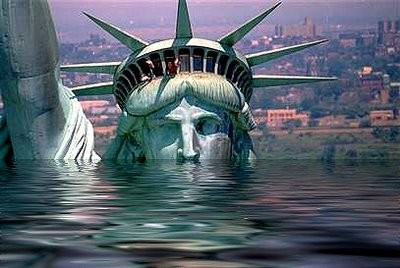 Faced with a fading superpower incapable of paying the bills, China, India, Iran, Russia, and other powers, great and regional, provocatively challenge U.S. dominion over the oceans, space, and cyberspace. Meanwhile, amid soaring prices, ever-rising unemployment, and a continuing decline in real wages, domestic divisions widen into violent clashes and divisive debates, often over remarkably irrelevant issues. Riding a political tide of disillusionment and despair, a far-right patriot captures the presidency with thundering rhetoric, demanding respect for American authority and threatening military retaliation or economic reprisal. The world pays next to no attention as the American Century ends in silence.
Faced with a fading superpower incapable of paying the bills, China, India, Iran, Russia, and other powers, great and regional, provocatively challenge U.S. dominion over the oceans, space, and cyberspace. Meanwhile, amid soaring prices, ever-rising unemployment, and a continuing decline in real wages, domestic divisions widen into violent clashes and divisive debates, often over remarkably irrelevant issues. Riding a political tide of disillusionment and despair, a far-right patriot captures the presidency with thundering rhetoric, demanding respect for American authority and threatening military retaliation or economic reprisal. The world pays next to no attention as the American Century ends in silence.
Oil Shock: Present Situation
One casualty of America’s waning economic power has been its lock on global oil supplies. Speeding by America’s gas-guzzling economy in the passing lane, China became the world’s number one energy consumer this summer, a position the U.S. had held for over a century. Energy specialist Michael Klare has argued that this change means China will “set the pace in shaping our global future.”
By 2025, Iran and Russia will control almost half of the world’s natural gas supply, which will potentially give them enormous leverage over energy-starved Europe. Add petroleum reserves to the mix and, as the National Intelligence Council has warned, in just 15 years two countries, Russia and Iran, could “emerge as energy kingpins.”
Despite remarkable ingenuity, the major oil powers are now draining the big basins of petroleum reserves that are amenable to easy, cheap extraction. The real lesson of the Deepwater Horizon oil disaster in the Gulf of Mexico was not BP’s sloppy safety standards, but the simple fact everyone saw on “spillcam”: one of the corporate energy giants had little choice but to search for what Klare calls “tough oil” miles beneath the surface of the ocean to keep its profits up.
Compounding the problem, the Chinese and Indians have suddenly become far heavier energy consumers. Even if fossil fuel supplies were to remain constant (which they won’t), demand, and so costs, are almost certain to rise — and sharply at that. Other developed nations are meeting this threat aggressively by plunging into experimental programs to develop alternative energy sources. The United States has taken a different path, doing far too little to develop alternative sources while, in the last three decades, doubling its dependence on foreign oil imports. Between 1973 and 2007, oil imports have risen from 36% of energy consumed in the U.S. to 66%.
Oil Shock: Scenario 2025
The United States remains so dependent upon foreign oil that a few adverse developments in the global energy market in 2025 spark an oil shock. By comparison, it makes the 1973 oil shock (when prices quadrupled in just months) look like the proverbial molehill. Angered at the dollar’s plummeting value, OPEC oil ministers, meeting in Riyadh, demand future energy payments in a “basket” of Yen, Yuan, and Euros. That only hikes the cost of U.S. oil imports further. At the same moment, while signing a new series of long-term delivery contracts with China, the Saudis stabilize their own foreign exchange reserves by switching to the Yuan. Meanwhile, China pours countless billions into building a massive trans-Asia pipeline and funding Iran’s exploitation of the world largest natural gas field at South Pars in the Persian Gulf.
Concerned that the U.S. Navy might no longer be able to protect the oil tankers traveling from the Persian Gulf to fuel East Asia, a coalition of Tehran, Riyadh, and Abu Dhabi form an unexpected new Gulf alliance and affirm that China’s new fleet of swift aircraft carriers will henceforth patrol the Persian Gulf from a base on the Gulf of Oman. Under heavy economic pressure, London agrees to cancel the U.S. lease on its Indian Ocean island base of Diego Garcia, while Canberra, pressured by the Chinese, informs Washington that the Seventh Fleet is no longer welcome to use Fremantle as a homeport, effectively evicting the U.S. Navy from the Indian Ocean.
With just a few strokes of the pen and some terse announcements, the “Carter Doctrine,” by which U.S. military power was to eternally protect the Persian Gulf, is laid to rest in 2025. All the elements that long assured the United States limitless supplies of low-cost oil from that region — logistics, exchange rates, and naval power — evaporate. At this point, the U.S. can still cover only an insignificant 12% of its energy needs from its nascent alternative energy industry, and remains dependent on imported oil for half of its energy consumption.
The oil shock that follows hits the country like a hurricane, sending prices to startling heights, making travel a staggeringly expensive proposition, putting real wages (which had long been declining) into freefall, and rendering non-competitive whatever American exports remained. With thermostats dropping, gas prices climbing through the roof, and dollars flowing overseas in return for costly oil, the American economy is paralyzed. With long-fraying alliances at an end and fiscal pressures mounting, U.S. military forces finally begin a staged withdrawal from their overseas bases.
Within a few years, the U.S. is functionally bankrupt and the clock is ticking toward midnight on the American Century.
Military Misadventure: Present Situation
Counterintuitively, as their power wanes, empires often plunge into ill-advised military misadventures. This phenomenon is known among historians of empire as “micro-militarism” and seems to involve psychologically compensatory efforts to salve the sting of retreat or defeat by occupying new territories, however briefly and catastrophically. These operations, irrational even from an imperial point of view, often yield hemorrhaging expenditures or humiliating defeats that only accelerate the loss of power.
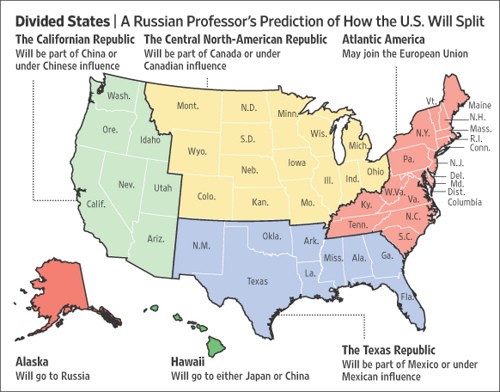
Embattled empires through the ages suffer an arrogance that drives them to plunge ever deeper into military misadventures until defeat becomes debacle. In 413 BCE, a weakened Athens sent 200 ships to be slaughtered in Sicily. In 1921, a dying imperial Spain dispatched 20,000 soldiers to be massacred by Berber guerrillas in Morocco. In 1956, a fading British Empire destroyed its prestige by attacking Suez. And in 2001 and 2003, the U.S. occupied Afghanistan and invaded Iraq. With the hubris that marks empires over the millennia, Washington has increased its troops in Afghanistan to 100,000, expanded the war into Pakistan, and extended its commitment to 2014 and beyond, courting disasters large and small in this guerilla-infested, nuclear-armed graveyard of empires.
Military Misadventure: Scenario 2014
So irrational, so unpredictable is “micro-militarism” that seemingly fanciful scenarios are soon outdone by actual events. With the U.S. military stretched thin from Somalia to the Philippines and tensions rising in Israel, Iran, and Korea, possible combinations for a disastrous military crisis abroad are multifold.
It’s mid-summer 2014 and a drawn-down U.S. garrison in embattled Kandahar in southern Afghanistan is suddenly, unexpectedly overrun by Taliban guerrillas, while U.S. aircraft are grounded by a blinding sandstorm. Heavy loses are taken and in retaliation, an embarrassed American war commander looses B-1 bombers and F-16 fighters to demolish whole neighborhoods of the city that are believed to be under Taliban control, while AC-130U “Spooky” gunships rake the rubble with devastating cannon fire.
Soon, mullahs are preaching jihad from mosques throughout the region, and Afghan Army units, long trained by American forces to turn the tide of the war, begin to desert en masse. Taliban fighters then launch a series of remarkably sophisticated strikes aimed at U.S. garrisons across the country, sending American casualties soaring. In scenes reminiscent of Saigon in 1975, U.S. helicopters rescue American soldiers and civilians from rooftops in Kabul and Kandahar.
Meanwhile, angry at the endless, decades-long stalemate over Palestine, OPEC’s leaders impose a new oil embargo on the U.S. to protest its backing of Israel as well as the killing of untold numbers of Muslim civilians in its ongoing wars across the Greater Middle East. With gas prices soaring and refineries running dry, Washington makes its move, sending in Special Operations forces to seize oil ports in the Persian Gulf. This, in turn, sparks a rash of suicide attacks and the sabotage of pipelines and oil wells. As black clouds billow skyward and diplomats rise at the U.N. to bitterly denounce American actions, commentators worldwide reach back into history to brand this “America’s Suez,” a telling reference to the 1956 debacle that marked the end of the British Empire.
World War III: Present Situation
In the summer of 2010, military tensions between the U.S. and China began to rise in the western Pacific, once considered an American “lake.” Even a year earlier no one would have predicted such a development. As Washington played upon its alliance with London to appropriate much of Britain’s global power after World War II, so China is now using the profits from its export trade with the U.S. to fund what is likely to become a military challenge to American dominion over the waterways of Asia and the Pacific.
With its growing resources, Beijing is claiming a vast maritime arc from Korea to Indonesia long dominated by the U.S. Navy. In August, after Washington expressed a “national interest” in the South China Sea and conducted naval exercises there to reinforce that claim, Beijing’s official Global Times responded angrily, saying, “The U.S.-China wrestling match over the South China Sea issue has raised the stakes in deciding who the real future ruler of the planet will be.”
Amid growing tensions, the Pentagon reported that Beijing now holds “the capability to attack… [U.S.] aircraft carriers in the western Pacific Ocean” and target “nuclear forces throughout… the continental United States.” By developing “offensive nuclear, space, and cyber warfare capabilities,” China seems determined to vie for dominance of what the Pentagon calls “the information spectrum in all dimensions of the modern battlespace.” With ongoing development of the powerful Long March V booster rocket, as well as the launch of two satellites in January 2010 and another in July, for a total of five, Beijing signaled that the country was making rapid strides toward an “independent” network of 35 satellites for global positioning, communications, and reconnaissance capabilities by 2020.
To check China and extend its military position globally, Washington is intent on building a new digital network of air and space robotics, advanced cyberwarfare capabilities, and electronic surveillance. Military planners expect this integrated system to envelop the Earth in a cyber-grid capable of blinding entire armies on the battlefield or taking out a single terrorist in field or favela. By 2020, if all goes according to plan, the Pentagon will launch a three-tiered shield of space drones — reaching from stratosphere to exosphere, armed with agile missiles, linked by a resilient modular satellite system, and operated through total telescopic surveillance.
Last April, the Pentagon made history. It extended drone operations into the exosphere by quietly launching the X-37B unmanned space shuttle into a low orbit 255 miles above the planet. The X-37B is the first in a new generation of unmanned vehicles that will mark the full weaponization of space, creating an arena for future warfare unlike anything that has gone before.
World War III: Scenario 2025
The technology of space and cyberwarfare is so new and untested that even the most outlandish scenarios may soon be superseded by a reality still hard to conceive. If we simply employ the sort of scenarios that the Air Force itself used in its 2009 Future Capabilities Game, however, we can gain “a better understanding of how air, space and cyberspace overlap in warfare,” and so begin to imagine how the next world war might actually be fought.
It’s 11:59 p.m. on Thanksgiving Thursday in 2025. While cyber-shoppers pound the portals of Best Buy for deep discounts on the latest home electronics from China, U.S. Air Force technicians at the Space Surveillance Telescope (SST) on Maui choke on their coffee as their panoramic screens suddenly blip to black. Thousands of miles away at the U.S. CyberCommand’s operations center in Texas, cyberwarriors soon detect malicious binaries that, though fired anonymously, show the distinctive digital fingerprints of China’s People’s Liberation Army.
The first overt strike is one nobody predicted. Chinese “malware” seizes control of the robotics aboard an unmanned solar-powered U.S. “Vulture” drone as it flies at 70,000 feet over the Tsushima Strait between Korea and Japan. It suddenly fires all the rocket pods beneath its enormous 400-foot wingspan, sending dozens of lethal missiles plunging harmlessly into the Yellow Sea, effectively disarming this formidable weapon.
Determined to fight fire with fire, the White House authorizes a retaliatory strike. Confident that its F-6 “Fractionated, Free-Flying” satellite system is impenetrable, Air Force commanders in California transmit robotic codes to the flotilla of X-37B space drones orbiting 250 miles above the Earth, ordering them to launch their “Triple Terminator” missiles at China’s 35 satellites. Zero response. In near panic, the Air Force launches its Falcon Hypersonic Cruise Vehicle into an arc 100 miles above the Pacific Ocean and then, just 20 minutes later, sends the computer codes to fire missiles at seven Chinese satellites in nearby orbits. The launch codes are suddenly inoperative.
As the Chinese virus spreads uncontrollably through the F-6 satellite architecture, while those second-rate U.S. supercomputers fail to crack the malware’s devilishly complex code, GPS signals crucial to the navigation of U.S. ships and aircraft worldwide are compromised. Carrier fleets begin steaming in circles in the mid-Pacific. Fighter squadrons are grounded. Reaper drones fly aimlessly toward the horizon, crashing when their fuel is exhausted. Suddenly, the United States loses what the U.S. Air Force has long called “the ultimate high ground”: space. Within hours, the military power that had dominated the globe for nearly a century has been defeated in World War III without a single human casualty.
A New World Order?
Even if future events prove duller than these four scenarios suggest, every significant trend points toward a far more striking decline in American global power by 2025 than anything Washington now seems to be envisioning.
As allies worldwide begin to realign their policies to take cognizance of rising Asian powers, the cost of maintaining 800 or more overseas military bases will simply become unsustainable, finally forcing a staged withdrawal on a still-unwilling Washington. With both the U.S. and China in a race to weaponize space and cyberspace, tensions between the two powers are bound to rise, making military conflict by 2025 at least feasible, if hardly guaranteed.
Complicating matters even more, the economic, military, and technological trends outlined above will not operate in tidy isolation. As happened to European empires after World War II, such negative forces will undoubtedly prove synergistic. They will combine in thoroughly unexpected ways, create crises for which Americans are remarkably unprepared, and threaten to spin the economy into a sudden downward spiral, consigning this country to a generation or more of economic misery.
As U.S. power recedes, the past offers a spectrum of possibilities for a future world order. At one end of this spectrum, the rise of a new global superpower, however unlikely, cannot be ruled out. Yet both China and Russia evince self-referential cultures, recondite non-roman scripts, regional defense strategies, and underdeveloped legal systems, denying them key instruments for global dominion. At the moment then, no single superpower seems to be on the horizon likely to succeed the U.S.
In a dark, dystopian version of our global future, a coalition of transnational corporations, multilateral forces like NATO, and an international financial elite could conceivably forge a single, possibly unstable, supra-national nexus that would make it no longer meaningful to speak of national empires at all. While denationalized corporations and multinational elites would assumedly rule such a world from secure urban enclaves, the multitudes would be relegated to urban and rural wastelands.
In Planet of Slums, Mike Davis offers at least a partial vision of such a world from the bottom up. He argues that the billion people already packed into fetid favela-style slums worldwide (rising to two billion by 2030) will make “the ‘feral, failed cities’ of the Third World… the distinctive battlespace of the twenty-first century.” As darkness settles over some future super-favela, “the empire can deploy Orwellian technologies of repression” as “hornet-like helicopter gun-ships stalk enigmatic enemies in the narrow streets of the slum districts… Every morning the slums reply with suicide bombers and eloquent explosions.”
At a midpoint on the spectrum of possible futures, a new global oligopoly might emerge between 2020 and 2040, with rising powers China, Russia, India, and Brazil collaborating with receding powers like Britain, Germany, Japan, and the United States to enforce an ad hoc global dominion, akin to the loose alliance of European empires that ruled half of humanity circa 1900.
Another possibility: the rise of regional hegemons in a return to something reminiscent of the international system that operated before modern empires took shape. In this neo-Westphalian world order, with its endless vistas of micro-violence and unchecked exploitation, each hegemon would dominate its immediate region — Brasilia in South America, Washington in North America, Pretoria in southern Africa, and so on. Space, cyberspace, and the maritime deeps, removed from the control of the former planetary “policeman,” the United States, might even become a new global commons, controlled through an expanded U.N. Security Council or some ad hoc body.
All of these scenarios extrapolate existing trends into the future on the assumption that Americans, blinded by the arrogance of decades of historically unparalleled power, cannot or will not take steps to manage the unchecked erosion of their global position.
If America’s decline is in fact on a 22-year trajectory from 2003 to 2025, then we have already frittered away most of the first decade of that decline with wars that distracted us from long-term problems and, like water tossed onto desert sands, wasted trillions of desperately needed dollars.
If only 15 years remain, the odds of frittering them all away still remain high. Congress and the president are now in gridlock; the American system is flooded with corporate money meant to jam up the works; and there is little suggestion that any issues of significance, including our wars, our bloated national security state, our starved education system, and our antiquated energy supplies, will be addressed with sufficient seriousness to assure the sort of soft landing that might maximize our country’s role and prosperity in a changing world.
Europe’s empires are gone and America’s imperium is going. It seems increasingly doubtful that the United States will have anything like Britain’s success in shaping a succeeding world order that protects its interests, preserves its prosperity, and bears the imprint of its best values.



 WikiLeaks lässt in seinen Bemühungen, Licht in das Dunkel von Verschwörungen, Korruption und Vertuschungen zu bringen, nicht nach und erschüttert damit weiterhin die politische Welt. Aus den jüngsten, von WikiLeaks veröffentlichten amerikanischen Botschaftsberichten geht hervor, dass die USA als treibende Kraft hinter den Kulissen daran beteiligt sind, europäischen Ländern gentechnisch veränderte Organismen (sogenannte »GMO«) aufzuzwingen. Sollten sie sich weigern, hätten sie mit gesalzenen Strafmaßnahmen zu rechnen.
WikiLeaks lässt in seinen Bemühungen, Licht in das Dunkel von Verschwörungen, Korruption und Vertuschungen zu bringen, nicht nach und erschüttert damit weiterhin die politische Welt. Aus den jüngsten, von WikiLeaks veröffentlichten amerikanischen Botschaftsberichten geht hervor, dass die USA als treibende Kraft hinter den Kulissen daran beteiligt sind, europäischen Ländern gentechnisch veränderte Organismen (sogenannte »GMO«) aufzuzwingen. Sollten sie sich weigern, hätten sie mit gesalzenen Strafmaßnahmen zu rechnen.
 del.icio.us
del.icio.us
 Digg
Digg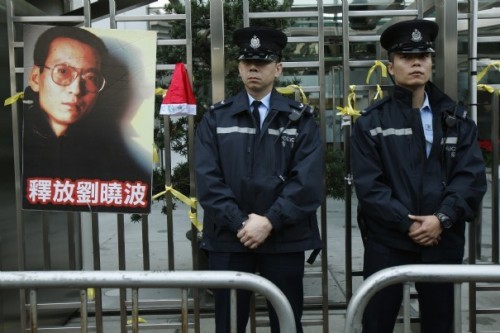

 It is almost too perfectly-scripted to be true. A discontented 22 -year old US Army soldier on duty in Baghdad, Bradley Manning, a low-grade US Army intelligence analyst, described as a loner, a gay in the military, a disgruntled “computer geek,” sifts through classified information at Forward Operating Base Hammer. He decides to secretly download US State Department email communications from the entire world over a period of eight months for hours a day, onto his blank CDs while pretending to be listening to Lady Gaga. In addition to diplomatic cables, Manning is believed to have provided WikiLeaks with helicopter gun camera video of an errant US attack in Baghdad on unarmed journalists, and with war logs from Iraq and Afghanistan.
It is almost too perfectly-scripted to be true. A discontented 22 -year old US Army soldier on duty in Baghdad, Bradley Manning, a low-grade US Army intelligence analyst, described as a loner, a gay in the military, a disgruntled “computer geek,” sifts through classified information at Forward Operating Base Hammer. He decides to secretly download US State Department email communications from the entire world over a period of eight months for hours a day, onto his blank CDs while pretending to be listening to Lady Gaga. In addition to diplomatic cables, Manning is believed to have provided WikiLeaks with helicopter gun camera video of an errant US attack in Baghdad on unarmed journalists, and with war logs from Iraq and Afghanistan.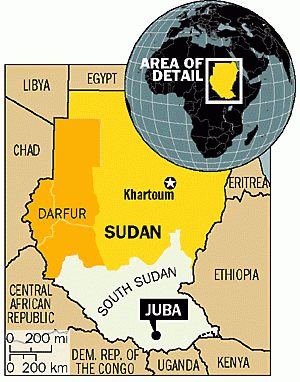 Le 9 janvier prochain, les habitants des provinces méridionales du Soudan décideront, par le biais d’une consultation populaire, s’ils veulent vivre ou non dans leur propre Etat. Il n’y aura pas de surprise : on ne s’attend pas à autre chose qu’à un « oui » massif en faveur de l’indépendance car le Sud animiste et chrétien lutte depuis plusieurs décennies pour se détacher du Nord musulman. Ce n’est qu’en 2005 qu’il fut mis un terme aux violences par la signature d’un Accord de Paix général (APG) ; depuis lors, l’instabilité règne toujours dans cet Etat africain, le plus grand en surface de tout le Continent noir.
Le 9 janvier prochain, les habitants des provinces méridionales du Soudan décideront, par le biais d’une consultation populaire, s’ils veulent vivre ou non dans leur propre Etat. Il n’y aura pas de surprise : on ne s’attend pas à autre chose qu’à un « oui » massif en faveur de l’indépendance car le Sud animiste et chrétien lutte depuis plusieurs décennies pour se détacher du Nord musulman. Ce n’est qu’en 2005 qu’il fut mis un terme aux violences par la signature d’un Accord de Paix général (APG) ; depuis lors, l’instabilité règne toujours dans cet Etat africain, le plus grand en surface de tout le Continent noir. 

 « (…) Tout dans l’Amérique est une copie grotesque de la réalité », constate l’universitaire et géopoliticien Tomislav Sunic dans Homo americanus, rejeton de la postmodernité, passionnante étude que viennent de publier les éditions Akribeia. « L’Amérique postmoderne fonctionne depuis 1945 comme une photocopie géante de la métaréalité ; non l’Amérique telle qu’elle est, mais l’Amérique telle qu’elle devrait être dans le monde entier. La seule différence est que, au XXIe siècle, l’histoire (…) est passée à la vitesse supérieure. Les événements se succèdent de façon désordonnée et foncent à toute allure vers un chaos total » – ce « chaos total » que l’idéologue néo-conservateur Michael Ledeen, pilier de la World Jewish Review et l’un des principaux inspirateurs de George W. Bush dans la guerre contre l’Irak, appelait de ses vœux dès 2001 car il y voyait le seul moyen d’instaurer un gouvernement mondial.
« (…) Tout dans l’Amérique est une copie grotesque de la réalité », constate l’universitaire et géopoliticien Tomislav Sunic dans Homo americanus, rejeton de la postmodernité, passionnante étude que viennent de publier les éditions Akribeia. « L’Amérique postmoderne fonctionne depuis 1945 comme une photocopie géante de la métaréalité ; non l’Amérique telle qu’elle est, mais l’Amérique telle qu’elle devrait être dans le monde entier. La seule différence est que, au XXIe siècle, l’histoire (…) est passée à la vitesse supérieure. Les événements se succèdent de façon désordonnée et foncent à toute allure vers un chaos total » – ce « chaos total » que l’idéologue néo-conservateur Michael Ledeen, pilier de la World Jewish Review et l’un des principaux inspirateurs de George W. Bush dans la guerre contre l’Irak, appelait de ses vœux dès 2001 car il y voyait le seul moyen d’instaurer un gouvernement mondial.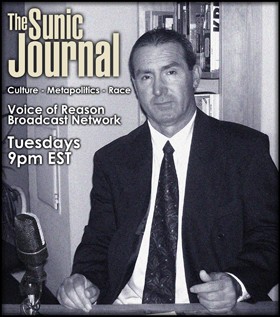 « Pendant que les Juifs russes inventent le socialisme et que les Juifs autrichiens découvrent la psychanalyse, les Juifs américains participent, au tout premier rang, à la naissance du capitalisme américain et à l’américanisation du monde », a reconnu, cité par Sunic, Jacques Attali dans Les Juifs, le monde et l’argent (Fayard 2002). Il est donc logique que Homo americanus et Homo sovieticus aient présenté tant de points communs tels le non-respect des Conventions de Genève sur les prisonniers de guerre ou l’envoi des dissidents dans des hôpitaux psychiatriques – sort réservé en 1945 à Ezra Pound, le plus grand poète états-unien jugé trop favorable au fascisme italien. Et logique aussi que « l’américanisation du monde », y compris du monde ex-soviétique (par le truchement de certains oligarques patrons de presse), soit menée tambour battant.
« Pendant que les Juifs russes inventent le socialisme et que les Juifs autrichiens découvrent la psychanalyse, les Juifs américains participent, au tout premier rang, à la naissance du capitalisme américain et à l’américanisation du monde », a reconnu, cité par Sunic, Jacques Attali dans Les Juifs, le monde et l’argent (Fayard 2002). Il est donc logique que Homo americanus et Homo sovieticus aient présenté tant de points communs tels le non-respect des Conventions de Genève sur les prisonniers de guerre ou l’envoi des dissidents dans des hôpitaux psychiatriques – sort réservé en 1945 à Ezra Pound, le plus grand poète états-unien jugé trop favorable au fascisme italien. Et logique aussi que « l’américanisation du monde », y compris du monde ex-soviétique (par le truchement de certains oligarques patrons de presse), soit menée tambour battant.



 L’Allemagne serait, en partie, à l’origine de l’envolée des taux d’intérêt sur les obligations portugaises et espagnoles de ces derniers jours. En cause, les récentes déclarations d’Angela Merkel sur l’éventualité de faire participer les créanciers privés en cas de restructuration de la dette publique de certains pays de la zone euro.
L’Allemagne serait, en partie, à l’origine de l’envolée des taux d’intérêt sur les obligations portugaises et espagnoles de ces derniers jours. En cause, les récentes déclarations d’Angela Merkel sur l’éventualité de faire participer les créanciers privés en cas de restructuration de la dette publique de certains pays de la zone euro.






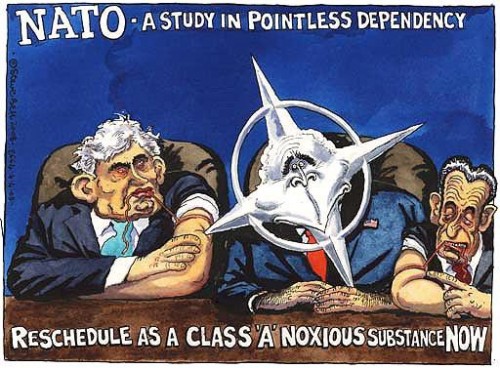
 Die Kreditrating-Agentur Dagong Global Credit, Chinas konservative Antwort auf das Monopol der von Amerika kontrollierten Agenturen Moody’s und Standard & Poor’s, hat vor wenigen Tagen die Qualität der Staatsverschuldung der Vereinigten Staaten von Amerika heruntergestuft; sie betrachtet die jüngste »Quantitative Lockerung« als absichtliche Abwertung des Dollar.
Die Kreditrating-Agentur Dagong Global Credit, Chinas konservative Antwort auf das Monopol der von Amerika kontrollierten Agenturen Moody’s und Standard & Poor’s, hat vor wenigen Tagen die Qualität der Staatsverschuldung der Vereinigten Staaten von Amerika heruntergestuft; sie betrachtet die jüngste »Quantitative Lockerung« als absichtliche Abwertung des Dollar.
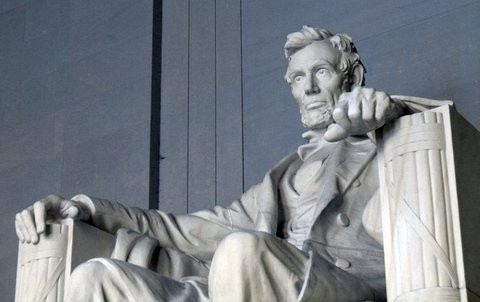
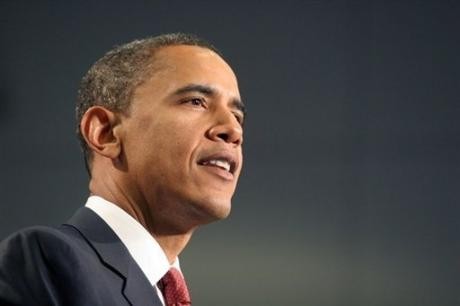
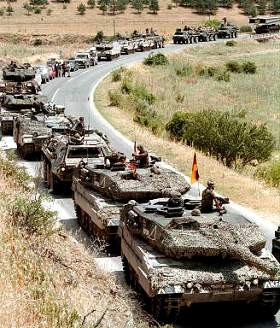 Herr Maschke, hat Gregor Gysi recht, wenn er davon spricht, daß Deutschland einen Angriffskrieg gegen Serbien führt?
Herr Maschke, hat Gregor Gysi recht, wenn er davon spricht, daß Deutschland einen Angriffskrieg gegen Serbien führt?